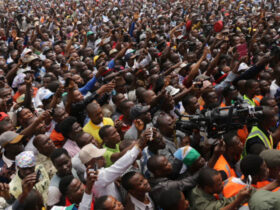By Consent or by Choice: Unraveling the Nigerian Leadership Crisis

The persistent issue of poor leadership across generations in Nigeria fundamentally stems from a deep-rooted moral decline within society. This decay originates from the erosion of indigenous cultural principles and social beliefs, heavily influenced and often undermined by Western ideologies and the adverse impacts of globalisation. Consequently, corruption is entrenched in Nigeria’s political and social fabric, thriving not in isolation but because the populace actively participates in sustaining it.
While many citizens blame politicians for the nation’s woes, the reality is that corruption germinates within the very families, communities, and institutions that nurture both leaders and followers. This dynamic politicises Nigerian society to the core, normalising unethical behaviors such as bribery, favoritism, dishonesty, and cutting corners, which the public simultaneously condemns and perpetuates.
Traditional authorities are not exempt from this cycle. Their significant social influence and political entanglements mean that every appointment, empowerment initiative, or opportunity is often exploited for personal gain rather than communal benefit.
Religious institutions, ideally bastions of fairness and justice, are also tainted by patronage and partiality. When combined with ethnic and tribal loyalties, corruption embeds itself deeply, much like the sprawling roots of a giant mahogany tree. Nigeria becomes a landscape fractured by competing ethnic interests and communal allegiances, where merit and integrity are sacrificed at the altar of kinship and tribal loyalty.
Consider the Nigerian Police Force as a reflection of this systemic failure. Leadership appointments, including the Inspector General of Police, are frequently based on tribal allegiance and loyalty rather than qualifications or integrity. Such appointments prioritize allegiance to the ruling elite over service to the Nigerian people, undermining the institution’s effectiveness and credibility.
This pattern extends to other government bodies, including the military, where power is consolidated at the top while institutional strength erodes from within. The absence of transparency and accountability leads to what can be described as “Fragmented Institutionalism”-a state where organizations lose their cohesion, purpose, and operational hierarchy due to incompetent leadership.
Within sectors like policing, defense, healthcare, and education, promotions and benefits are often awarded based on connections rather than merit or dedication. This practice results in institutions lacking respect, discipline, legality, and ethical standards. Instead of upholding justice, these public bodies become breeding grounds for corruption and oppression.
It is no surprise, then, that corruption remains deeply entrenched in public institutions. Since the administration of Muhammadu Buhari, Nigeria has witnessed a surge in terrorism, ethno-religious conflicts, banditry, kidnappings, political violence, and communal unrest.
Even more troubling is the public’s muted response to underperformance by officials. Economic decline persists while key figures like the Minister of Finance remain unchallenged. Security deteriorates, yet defense leaders continue to receive salaries and approve questionable contracts for weapons that fail to restore peace.
Inflation soars, yet the Central Bank Governor retains his position without accountability or public explanation. Meanwhile, Nigerians largely ignore the workings of the national assembly-overlooking critical legislation, budgets, and policies that directly impact economic growth and business development. Public outrage only surfaces when crises become headline news, often too late for effective intervention.
Why have we become so powerless to oppose the appointment of unqualified public officials by presidents, governors, military chiefs, or local leaders? Why do we tolerate the blatant mismanagement and abuse of power? Our silence and passivity enable politicians to flourish through corruption, nepotism, and cronyism.
Issues such as unpaid salaries, chronic underfunding of health and education, mounting foreign debts, reckless spending, and impunity that favors tribalism continue unchecked. These systemic failures force many into premature retirement, often to make way for tribal affiliates.
Who then will champion our rights, safeguard our freedoms, and uphold justice? Certainly not those who owe their positions to patronage and cannot challenge the very system that sustains them. Nor can we rely on the individuals who have been disempowered by this corrupt framework.
How many more families must suffer before Nigerians awaken to the reality of their predicament? How many injustices must be endured before we acknowledge that Nigeria is locked in conflict with its own citizens? When will we realign our values, recommit to truth, justice, and integrity, and reject the indifference that allows misgovernance and insensitivity to persist?
True moral integrity is not simply the absence of corruption but the unwavering refusal to tolerate it in any form. When citizens fail to resist corruption and oppression, they inevitably become victims of injustice, while those in power thrive on their complacency and submission.
Tyranny does not arise by chance; it is either accepted or chosen. If Nigerians continue to endure injustice without resistance, the harsh reality is that the leadership they have is a reflection of their own passivity-a costly consequence of disengaged citizenship.








Leave a Reply